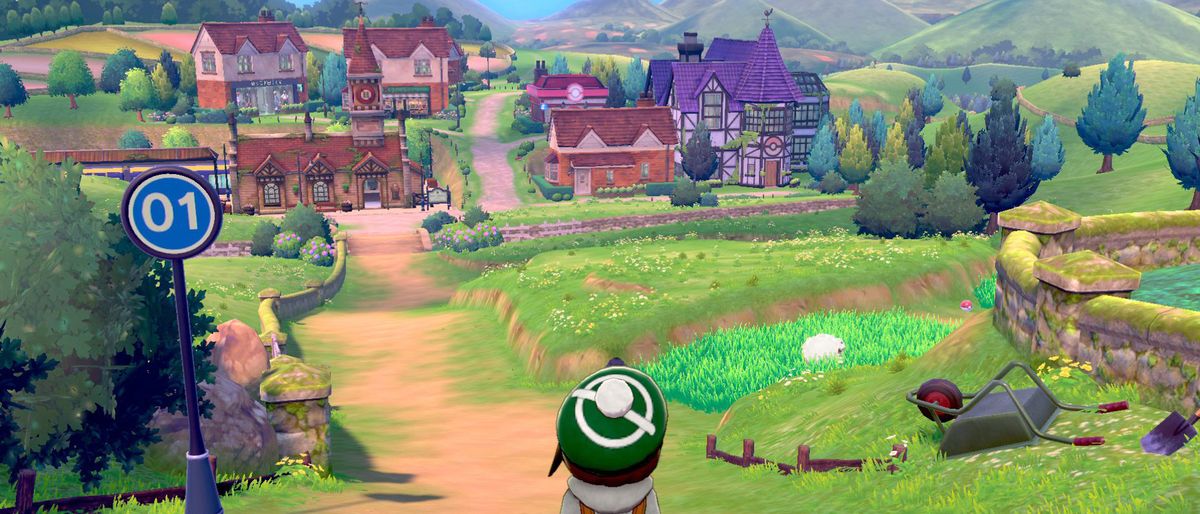TechRadar Verdict
Sword and Shield bring the "mainline" Pokémon games onto the Nintendo Switch with a dollop of charm and a real sense of fun, as well as some much-needed gameplay optimizations. But not everything is picture perfect and while this new generation is close to being the very best (like no game ever was) there are some areas where it just falls short.
Pros
- +
Fantastic Pokémon designs
- +
Immersive new region
- +
Considered and effective gameplay improvements
Cons
- -
Dynamaxing mechanic doesn't quite hit the mark
- -
Not as graphically accomplished as other Switch titles
Why you can trust TechRadar
Platform: Nintendo Switch
Version: Pokémon Sword
Time played: 24 hours
When it comes to charm, Pokémon Sword and Shield have it in spades. Whether you’re cooking a curry for your Pokémon around a campfire or being cheered outside Gyms by complete strangers who recognize you off the “telly”, these games go out of their way to warm you up, welcome you into their world and make you want to stay there.
Sword and Shield introduce players to the new Galar region. Inspired by the UK, this region is characterful and utterly full of personality. It has a cohesive identity that affectionately caricatures British pop culture and speech, while each town and city that make it up still manages to have its own utterly distinct look, resulting in a region that’s a playful mix of modernity and mythology. We had a niggling feeling as we wandered around the suspiciously clean cities and green rolling hills that this is potentially what some have convinced themselves the pre-EU UK once looked like. Galar is idyllic bordering on fantastical.
Drawing on British culture and folklore in a similarly successful manner are the new Pokémon native to this region. These regional variants and completely new creations are some of the best Pokémon designs we’ve seen in a long time, not only because they’re so creative and likeable but because they actually introduce some exciting new type combinations, adding a greater capacity for variety and balance when building your team.
Welcome to Galar guv'nor
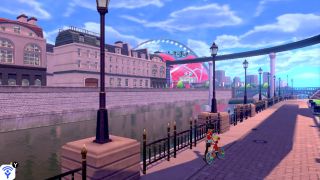
Game Freak was fairly tight-lipped when it came to revealing the new Pokémon that would feature in Sword and Shield. It was the right decision— this was the first game in a few generations that we felt a real sense of discovery when venturing into the long grass from the very start because we couldn’t predict exactly what we were going to see.
We would be remiss in talking about the game's Pokémon if we didn't mention the cut to the National Pokédex. Some of the furore around the cut of the National Dex from Sword and Shield has been understandable. For those who haven’t heard, where players could once catch the several hundred Pokémon on a game’s Regional Pokédex and then import the hundreds of others from across the series to complete a National Pokédex, this is no longer possible.
For long-standing fans who have been committed to bringing their team from the earliest games forward through successive generations, this is upsetting. This isn’t an unreasonable feeling—none of us can pretend we haven’t had an emotional attachment to a Pokémon even without years of dedication and attention plugged into them.
However, it’s important to note that the majority of players aren't likely to feel the effects of this, so while the loss of the option rankles it doesn't outright ruin by any means—the game is still chock full of great monsters to catch and you might even discover some new favorites.

While Sword and Shield does have some of the best-looking towns we've seen in the Pokémon series, sometimes they fall short in terms of depth. Most of the towns are built around their Gym, which is understandable as they're the focal point of the community in Galar. But centralizing Gyms to this degree does sometimes leave the rest of the town feeling like somewhere that looks good with little else of importance to offer—something to admire but not dig too far into.
There’s one particular town (and we won’t spoil where it is) which basically is the gym. Aside from its Pokémon centre and its gym battle, there’s really nothing much else to see or do here which feels like a waste of an original location that a distinctive and central character of the game proudly calls home.
Not every town in Galar is exactly like this—there are a couple of big cities to offset it with a bit more to see and do—but it’s symptomatic of a bigger issue in the games whereby some areas can leave you feeling like you’re being funnelled through an exceptionally pretty tunnel without a great deal of consequential interactivity or exploration.
It's a wild, wild area
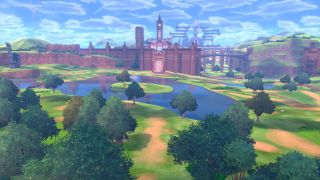
In complete contrast to this, however, is the game’s sprawling Wild Area which sits in the centre of the map. This is the closest Pokémon has gotten to a truly Breath of the Wild-style open world, where you’re able to explore with control over the camera. It feels like a take on the real-life Pokémon Go events that have been popping up over the world, where you’re able to wander around a park area dedicated to finding and catching Pokémon as well as engaging in Raids and bumping into other players.
Whether you’re a seasoned player or relatively new to Pokémon, the first sight of the Wild Area with its changing weather conditions and wandering Pokémon is striking. Nothing really beats the excitement of walking over a bridge and seeing a Gyarados glide through the water beside you.
Significantly, the Wild Area is home to Pokémon of all levels. This can be impressive and frustrating in equal measure as, alongside the usual obedience level cap, gym badges now determine the level of the Pokémon you can catch. So if you only have one gym badge and you bump into a level 30 Snorlax, you might as well throw your PokéBalls at a wall.
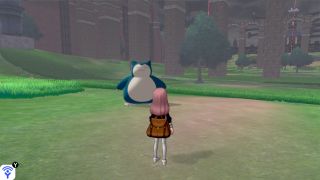
As annoying as this can be, it makes the world more dynamic and helps Gym battles feel like an integral part of your journey of improvement—powerful Pokémon don’t exist in a vacuum until you’re ready for them and just because you can’t catch them doesn’t mean you can’t battle them for training.
With its diverse biomes and weather cycles allowing for adaptive spawning as well as its online social aspects, the Wild Area marks an exciting milestone for the series. The initial thrill of the area is never quite as strong on successive visits, in part because while the long grass is always densely populated, you can walk for quite some time before coming across the impressive sight of a strong Pokémon stomping around in the open. And even then it’s likely to be alone. But its appeal still holds.
The Wild Area is a significant and positive break from tradition which successfully marries the linear Pokémon story with the increased desire for more open worlds and we hope to see it built on in future releases.
Dynamixed feelings
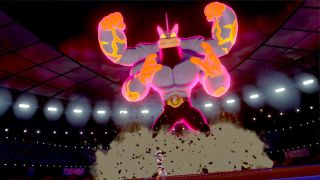
The Wild Area is also the home of Dynamax Raids, where you can join a team of three other players at a glowing den to battle and catch powerful and massive Dynamaxed Pokémon. These Raids can be played with up to three friends online (or with three AI ‘friends’ if you’re not really interested in online), and they vary in difficulty and worth. It’s not a bad idea to dip in and out of them for the chance of encountering a powerful Pokémon. However, a lot of the time the spectacle is more enjoyable than the battle itself.
Dynamaxing as a mechanic generally doesn’t always hit the right notes. It behaves like an amalgamation of Mega Evolution and Sun and Moon’s Z-Moves by changing your Pokémon’s size and allowing it to use more powerful moves. Like previous iterations, it has limitations and can be used once per battle for three moves as long as those battles take place in the Wild Area or in a Gym. The first couple of times Dynamaxing is used is fun thanks to the novelty of the animation and seeing the Godzilla Vs King Kong scale battles, but it begins to grate.
Aside from how it looks, Dynamaxing doesn’t actually add much to battles and the fact that Gym Leaders use it so predictably makes it feel like a chore you have to get through before you can collect your badge.
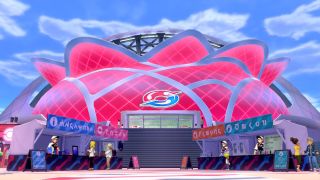
Gym battles being televised from cavernous stadia is a great change because it finally brings the excitement and fervor around competitive Pokémon battling that was so palpable in the anime to the games. There isn’t really any need to fill the space with huge hulking Pokémon to make it any more exciting.
There’s also even less need to complicate it further by including Gigantamaxing. This additional mechanic is very similar to Dynamaxing but is more rare and only possible for certain Pokémon, changing their size and form as well as giving them more powerful moves. It feels like a needless additional layer.
As Dynamaxing is so closely tied to the game’s story it’s hard to dismiss it entirely but there is a sense of style over substance with this mechanic.
Speaking of the gym battles, regardless of our feelings towards Dynamaxing, these are very fun in Sword and Shield.
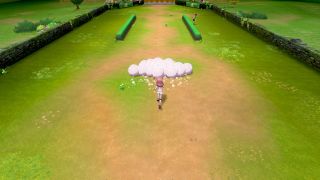
Building on the Trials from Sun and Moon, the Gym Challenges in Sword and Shield mix mini-game elements with battles before face the Gym Leader. Not all challenges are made equal but there are some standouts that do a very good job of breaking up the monotony of continuous Pokémon battles and smack talk from lesser trainers.
Pokémon Sword and Shield actually feature plenty of light touches like this—both new and expanded from previous releases—that add a greater sense of fun to the game.
We're going through changes
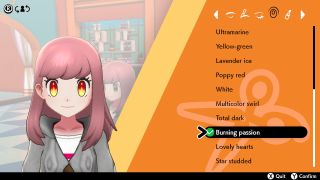
A minor indication of the series’ attempts to move forward and go bigger is the game’s character customization options. While the customization is not the most comprehensive in the world, for the mainline Pokémon games, it offers a lot more scope.
With each boutique carrying its own clothing styles, we spent quite a large sum of in-game money and time sifting through the range of hair, makeup and clothing options and changing them up. This is the Pokémon game with the best hair and for some players that will be a more ringing endorsement than anything else.
Customization is just one optional enhancement that you can take advantage of in Sword and Shield. Others include the ability to swap your team from boxes out on the road, rather than visit a Pokémon centre to use the computer; autosaving (even though we always saved twice manually before shutting down anyway); and streamlined fast travelling, where you can open the map and select somewhere you've been before, without any annoying animations or interactions dragging the process out further.
You can still stick to the traditional methods and ignore these changes but for most the pull of convenience will simply be too great.
Other enhancements aren’t optional and it depends on player preference whether this is a good or a bad thing. The most notable one is that XP Share—which allows you to spread your XP earned in battle more evenly across your team and level them up together. This is now always on where before it’s been an option.
For those who have never liked cycling their team in battle to keep levels balanced and avoid missing the Pokémon team equivalent of leg day, this is unlikely to be an issue. But for those who enjoy the challenge, the removal of choice may rub the wrong way. The Pokémon winning the battle does always get more XP even with the share system, so to keep things on a completely even keel it’s still worth putting all of your team up to bat at some point, but it’s not completely essential. Given XP Share has been optional previously, it just seems curious and slightly unnecessary to change it now.
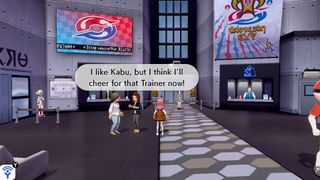
There are small changes which are likely to be less contentious, though. For example, now when you open the menu there’s a handy little pop-up that tells you where you ought to be going next. You can ignore this, of course, but when you’re being frazzled by your real-life and can’t play Pokémon for a while, it’s nice to know you can drop into the solace of your virtual world and quickly pick-up where you left off.
As appealing and necessary as many of these advancements are, however, when it comes to graphics Sword and Shield don’t feel like they've advanced quite as far as we’d like, at least relative to other big Switch releases.
Having spent more time with Sword, it’s clear that it shows the Pokémon series at its visual best, but compared to other Nintendo Switch titles like the bar-setting Breath of the Wild it's not quite up to par.
There were moments where Sun and Moon felt like they were straining against the confines of the 3DS system which made us excited for what was to come on Switch. And while Let’s Go certainly did step up from there, Sword and Shield don’t really feel like they’ve gone much further. Draw distance isn't always great and in set-piece-heavy areas like the biggest cities and the Wild Area, the frame rate can drop.
Cut scenes look good but not great and a little more variety in expressions would be welcome on characters. It’s somewhat odd to see a character express distress in a text box while their face shows nothing but a benign smile and a quizzical brow. In this vein, some voice acting wouldn’t go amiss in the future either. Even if only added to the game’s cutscenes, this could really elevate the atmosphere, particularly in Gyms where the moments before a match feel oddly anticlimactic as the huge crowd cheers around two mute trainers.
Verdict
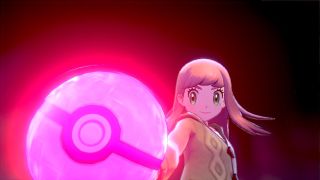
Pokémon is a hugely popular series with a passionate fanbase so what it’s been doing for past two decades clearly works. But the old adage "if it’s not broke don’t fix it" doesn’t leave a whole lot of room for innovation or creativity.
Games are an inherently creative medium, in terms of both making them and playing them, so at a certain point doing the same thing just because it works and the predictability is enjoyable is a disservice to both sides. It’s not easy to break new ground to welcome new players when you’re having to maintain a painstakingly honed and fiercely guarded garden of nostalgia at the same time, but Pokémon is clearly learning to strike a balance.
As much as we will cling to releases gone by, it’s been refreshing to see Game Freak continue to build on some of the key changes it made in Sun and Moon with Sword and Shield.
That said, the risk hasn’t always paid off and not everything lands. Some of the changes and additions would have been better off not being made and in some areas the game just doesn’t feel quite as full or as polished as it could be.
But it’s also important to note the many smaller changes intended to make gameplay more fun and flowing have absolutely been successful and worth making. And that's not even mentioning the excellent new Pokémon designs and the Wild Area which is an exciting addition showing genuine promise.
Overall, Pokémon Sword and Shield are solid and memorable releases for the series’ first mainline Switch release. They’re not flawless but they’re enormous fun for players new and old, establishing a solid base from which to build when it comes to future generations.
- Pokémon Sword or Shield: version differences and exclusives explained
Emma Boyle is TechRadar’s ex-Gaming Editor, and is now a content developer and freelance journalist. She has written for magazines and websites including T3, Stuff and The Independent. Emma currently works as a Content Developer in Edinburgh.

Prime Video could be removing my favorite sci-fi show this week – here’s why The Expanse is more than just Game of Thrones in space

Amazon quietly scraps popular Fire TV feature in new update, but there is a fix

I can’t wait to watch these 3 new movies and shows on Max with over 91% on Rotten Tomatoes
Most Popular


